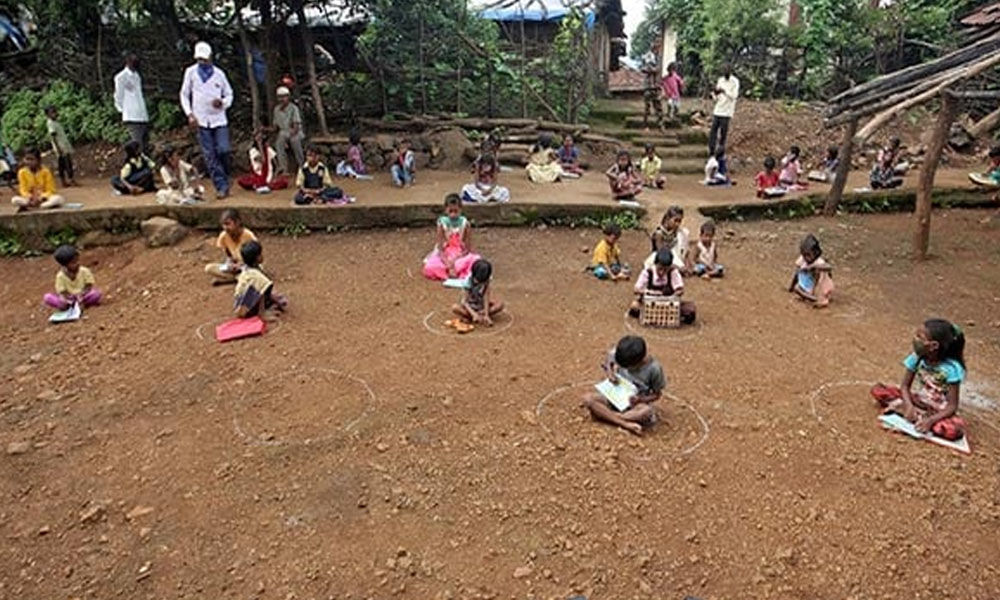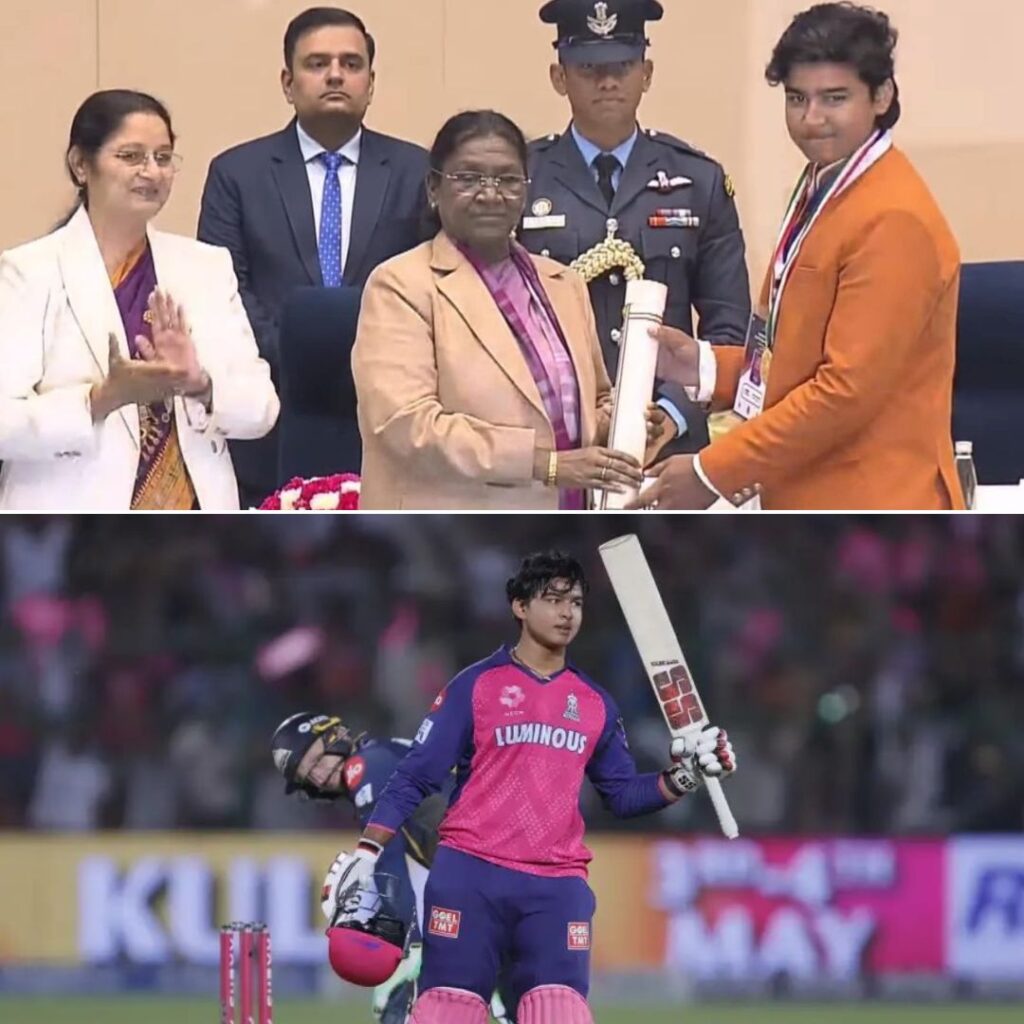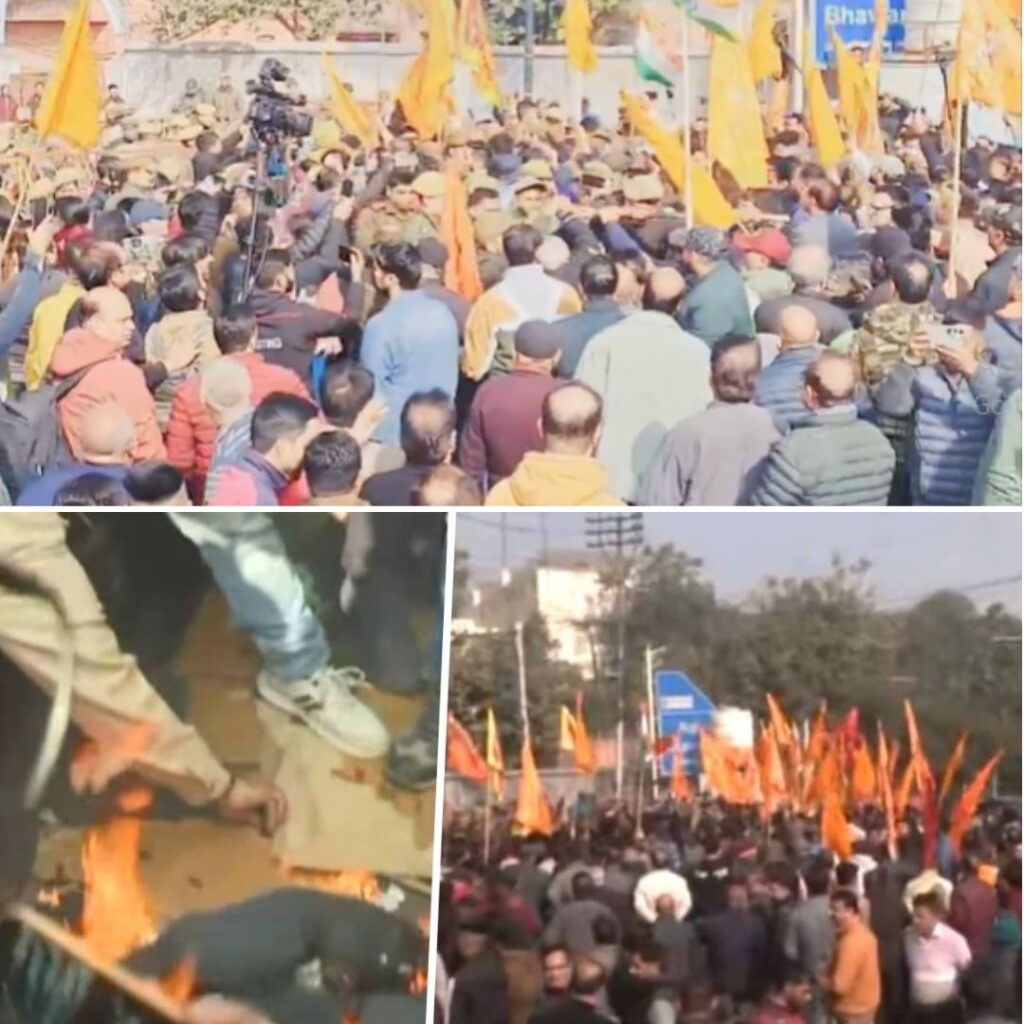As schools remain shut across the country due to the COVID-19 outbreak, several informal schools at various points under the Barapullah flyover in East Delhi are ensuring that the students do not miss out on learning.
According to a report by The Indian Express, these schools along the banks of the Yamuna, which earlier used to provide after-school extra classes, are now the main learning centres for children of urban farmers.
After seeing that the children were cut-off from learning, these schools, which run from morning to evening, restarted their operations in July.
Gautam, a class II student at an East MCD school, told the media, ‘My mother goes to my school on Wednesdays and collects worksheets with Hindi, English and maths exercises. I do whatever I can by myself; if there’s anything I can’t understand, teachers here help me out. The next Wednesday, my mother submits those to my teacher and picks up worksheets for the next week.’
While this is his only interaction with his school, Gautam attends classes at the informal set-up under the flyover every day except Sundays. The informal set-up is run by Satyendra Pal, a 25-year old B.Sc. graduate. Satyendra’s ‘school’ is run from a hut with a tarpaulin roof and an outdoor patch next to it.
While the schools teach maths and science for students of class VIII and above from 8 am to 11 am, English, maths and Hindi classes for younger children upwards of the nursery are taught from 12 pm to 3 pm, and English for older children and English and science for class VII students are taught from 3 pm.
The classes are also conducted by following various safety precautions. The smaller children are constantly reminded to keep a distance between each other by Rizwana, a volunteer at Satyendra’s school. Furthermore, the teachers have also distributed masks and hand sanitisers.
While Satyendra had restarted the school with only nine older children in July, with demands from other children and parents, he restarted the classes for the children.
‘I had restarted with only nine of the older children in July. After demands from the other children and their parents as well, and because children’s studies were suffering, we decided to go ahead with precautions,’ said Satyendra.
‘The children are getting worksheets once a week from school, which amounts to them getting homework. No one is teaching or explaining the new things in their syllabus to them. In this case, we are teaching them the syllabus from scratch. What started as a remedial centre is now a full-time school,’ he added.
Since 2016, Satyendra has been taking after-school classes for children in the area, and currently has five volunteer teachers working with him. The school has around 150 students, who pay whatever they can between ₹100 and ₹300. However, families who are extremely poor, pay nothing. Since the lockdown, none of the families has been able to pay the fees.
Meanwhile, 24-year-old Deb Pal, a law student, runs another ‘informal school’ in a hut barely 50 metres away. The school was started in 2019 as a coaching centre and gave each child around 40 minutes daily.
‘Now that we are operating as a school, we are giving each child three hours in a day. We start at 7:30 am. In the mornings, we focus on English, in the afternoons, we focus on Maths, and then we have one hour to help them with their worksheets,’ said Deb.
The classes are attended by children whose parents farm on the Yamuna Khadar. While the government and MCD schools send worksheets on WhatsApp, in these areas, the usage of smartphones is low. In addition, houses also do not have electricity and are dependent on irregular solar energy, which further makes charging devices difficult.
In families without smartphones, the parents go to the schools to collect worksheets. Meanwhile, for those houses with smartphones, it is shared between multiple people. For instance, Omprakash, a class IX student of Satyendra’s school, has five other siblings and has just one smartphone.
Yet another informal classes are run under another portion of the under-construction flyover.by 27-year-old Naresh Pal, an MSW graduate and UPSC aspirant. Amid the lockdown, Naresh had restarted his classes after four years. Under five different sections of the flyover, the children sit in groups of around 25 on plastic stools.
‘I used to take classes here between 2011 and 2016, but stopped after I started preparing for UPSC. Now that classes at my coaching centre have gone online, I started taking classes here with four other volunteer teachers,’ said Naresh.
‘There are so many children here who, even at class VIII and IX, can’t read their textbooks. If it weren’t for schools like ours, I don’t think they could have even done their worksheets,’ he added.
Amid the lockdown that has brought the education of many students to a standstill, several individuals and teachers have gone beyond their means to ensure that the children do not miss out on learning.
In Kerala’s Kochi, teachers of St John Bosco’s…











